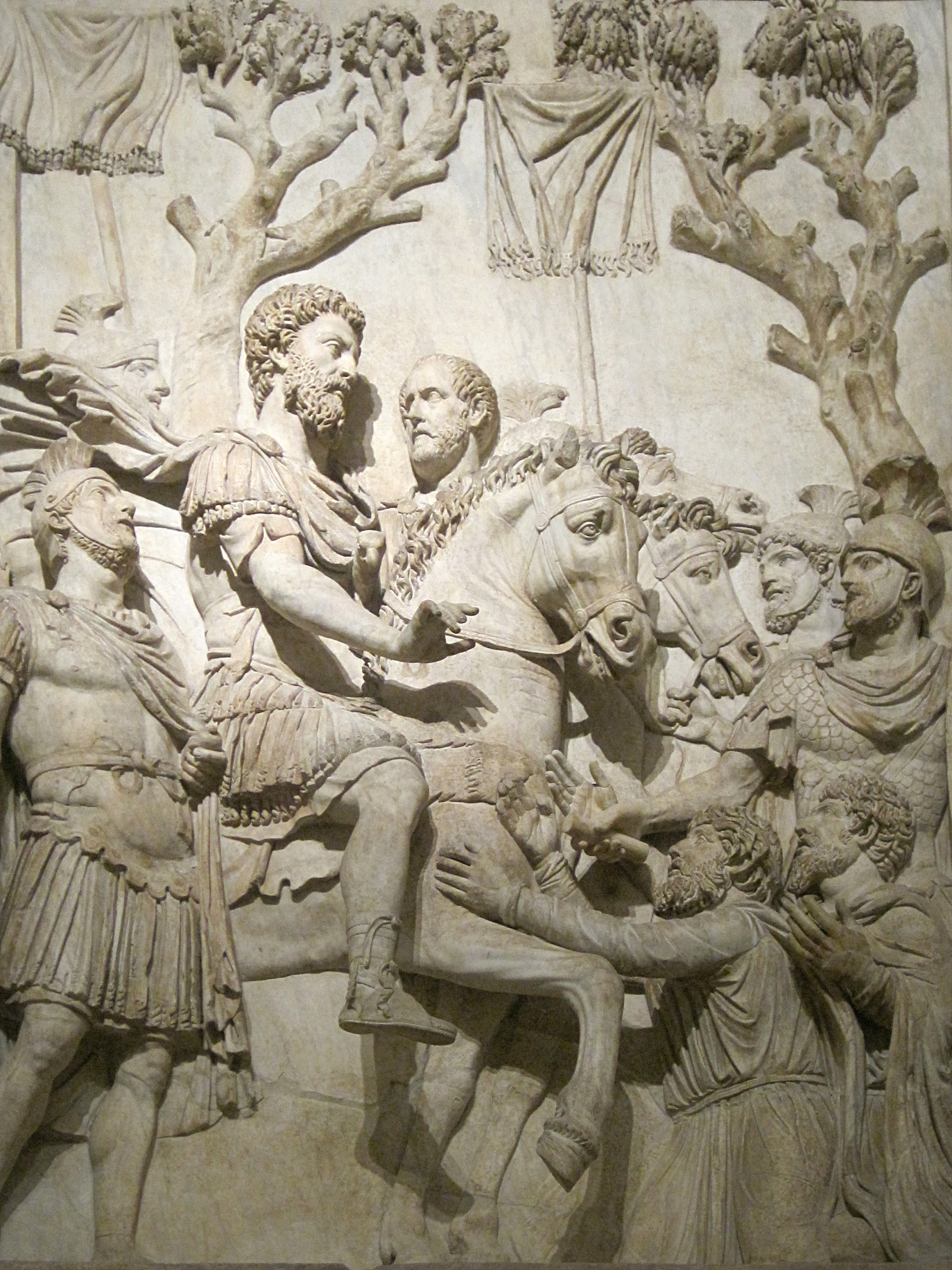About Marcus
Marcus Aurelius (Marcus Aurelius Antoninus Augustus; 26 April 121 – 17 March 180 AD) was Roman emperor from 161 to 180. He ruled with his adoptive brother, Lucius Verus, until Verus' death in 169, and with his son, Commodus, from 177. He was the last successor of rulers traditionally known as the Five Good Emperors.
Among Roman Emperors he has been called "The Philosopher". He was a practitioner of Stoicism, and his personal philosophical writings, which later came to be called Meditations, are a significant source of the modern understanding of ancient Stoic philosophy. Read more →

Meditations
Marcus Aurelius wrote the 12 books of the Meditations in Koine Greek as a source for his own guidance and self-improvement. It is possible that large portions of the work were written at Sirmium, where he spent much time planning military campaigns from 170 to 180. Read more →
Stoicism
Stoicism is a school of Hellenistic philosophy founded by Zeno of Citium in Athens in the early 3rd century BC. It was heavily influenced by certain teachings of Socrates, while Stoic physics are largely drawn from the teachings of the philosopher Heraclitus. Read more →
History
121-136 Childhood
Aurelius' sister, Annia, was probably born in 122 or 123. His father probably died in 124, during his praetorship, when Aurelius was only three years old. Though he can hardly have known his father, Aurelius wrote in his Meditations that he had learned "modesty and manliness" from his memories of his father.
Read more →136 Succession to Hadrian
In late 136, Hadrian almost died from a haemorrhage. Convalescent in his villa at Tivoli, he selected Lucius Ceionius Commodus, Aurelius' intended father-in-law, as his successor and adopted him as his son. The selection was done invitis omnibus, "against the wishes of everyone".
Read more →138–145 Antoninus's heir
Immediately after Hadrian's death, Antoninus approached Aurelius and requested that his marriage arrangements be amended: Aurelius' betrothal to Ceionia Fabia would be annulled, and he would be betrothed to Faustina, Antoninus' daughter, instead.
Read more →147 Births and deaths
On November 30, 147, Faustina gave birth to a girl, named Domitia Faustina. She was the first of at least thirteen children (including two sets of twins) that Faustina would bear over the next twenty-three years.
Read more →161 Accession. Emperor
After Antoninus Pius died in 161, Aurelius was effectively sole ruler of the Empire. The formalities of the position would follow. The senate would soon grant him the name Augustus and the title imperator.
Read more →161-166 War with Parthia
On his deathbed, Antoninus Pius spoke of nothing but the state and the foreign kings who had wronged him. One of those kings, Vologases IV of Parthia, made his move in late summer or early autumn 161.
Read more →165-180 Plague
When Verus' army returned from the war with Parthia, it brought with it plague. Cases of "Antonine Plague", also known as "the Plague of Galen", occurred throughout the Empire for years.
Read more →166-180 War with tribes
During the early 160s, Fronto's son-in-law Victorinus was stationed as a legate in Germany. He was there with his wife and children (another child had stayed with Fronto and his wife in Rome).
Read more →180 Death
Aurelius died on 17 March 180 due to natural causes in the city of Vindobona (modern Vienna). He was immediately deified and his ashes were returned to Rome.
Read more →